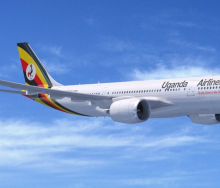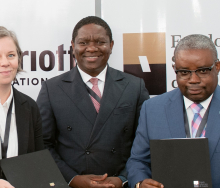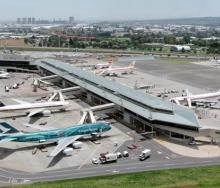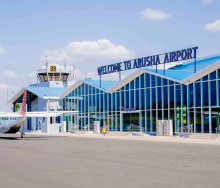IATA notes with concern
South Africa’s new
immigration measures, which
require adults travelling with
children to carry unabridged
birth certificates.
Iata fully supports South
Africa in its laudable campaign
to combat child trafficking
but the new measures
prompt us to ask just how
big is the problem in South
Africa? Is the country dealing
with a problem of crisis
proportions? And how much of
it takes advantage of airlines
serving South Africa’s major
international airports?
Airports are not a country’s
only points of entry and exit
and, by the government’s
own admission, its land
borders are porous and it
has inadequate resources to
patrol its long coastline from
traffickers and smugglers.
The SA Police Service’s
2004-2014 crime statistics,
which categorise all significant
types of reported offences,
make no mention of child
trafficking. Can one infer
from this that the level of
incidence does not warrant
the categorisation of such
occurrences?
So is the government using
a sledgehammer to crush
an ant? Iata believes there
are better and more effective
alternative solutions worth
exploring. It is on these
burning issues that Iata and
its sister bodies in travel
and tourism have sought to
engage the DHA since last
year.
Airlines are in the business
of safely carrying people and
goods between markets.
They are neither policemen
nor immigration officers, yet
governments, including South
Africa’s, insist on passing
the buck and tasking airlines
with doing governments’
work – with no reward or
reimbursement for the
additional costs incurred
for doing so. Surely then,
governments should ensure
that everyone in the chain
is consulted on the rules,
that there is proper and
full understanding of them
and that their enforcement
measures are pragmatic and
manageable.
The effects of over-regulation
should already be apparent
to South Africa, which, in
2013 invoked a new transit
visa requirement for travellers
commuting to and from other
African countries on flights
connecting at South African
airports. The result has been
a marked movement of intraAfrican
connecting passengers
away from Johannesburg’s
OR Tambo International Airport
to Nairobi, Addis Ababa and
even Dubai, all of which offer
comprehensive connections
to African destinations with
simplified, yet still effective,
visa and immigration
processes.
In the sole meeting we were
granted with the Minister of
Home Affairs last September,
he agreed to stop the clock
on the implementation until
June 1 and to appoint a joint
government-industry task
group to research international
best practices and make
recommendations on the
new regulations and their
implementation. Its task was
also to include the preparation
of a communications strategy
and toolkit to support the
roll-out of the new systems
and processes and ensure
that accurate and consistent
information was conveyed to
potential travellers and all
other stakeholders.
For reasons unknown to us,
and despite several attempts
to maintain an open channel
with the Minister’s office,
this task group was never
appointed and none of the
tasks undertaken.
Despite these unanswered
questions, Iata has every
faith that the South African
Government is acting in the
best interests of the country
and that it will review, modify,
or, if necessary, rescind the
new measures if they do not
have the desired effect and
if they act as a handbrake on
travel, tourism and economic
growth, not just for South
Africa, which is experiencing
its weakest GDP performance
in decades, but for the entire
region.
Raphael Kuuchi
Iata vp, Afric
Letter to the Editor: Is the government using a sledgehammer to crush an ant?
02 Dec 2015
Comments | 0













